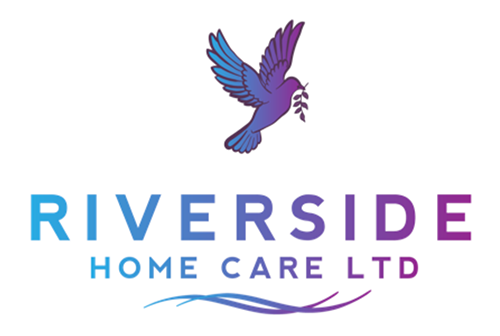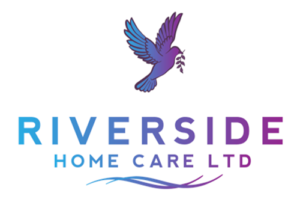When it comes to arranging care at home, understanding your funding options can make a big difference. One flexible option in Worcestershire is Direct Payments, which allow you to receive your personal care budget directly and take control of how it’s spent. In this blog, we’ll explain how the direct payment process works, what the means-tested capital limit of £23,250 means in financial assessments, and how organization’s like Barrie Bookkeeping & Payroll Solutions Ltd and Riverside can support you if you choose this route. Direct Payments empower you to choose the care agency that feels right for you – and at Riverside Home Care, we have helped many clients navigate this process successfully.
What Are Direct Payments?
Direct Payments are funds given to you by the local authority (Worcestershire County Council) so that you can arrange and pay for your own care services instead of the council arranging services for you. In other words, if you are eligible for social care support, you can opt to receive the budget for your care needs as a direct payment and manage it yourself (or with help), rather than having the council choose care services on your behalf. This approach gives you more choice, control, and flexibility over your care and support arrangements.
This is the official publication from Worcestershire County Council explaining Direct Payments; worcestershire.gov.uk/…/Your Guide to Direct Payments.pdf
. You get to decide who provides your care (such as selecting Riverside Home Care Ltd or another agency that you trust), what type of support you receive, and when you receive it, so it best fits your life.
How Does the Direct Payment Process Work?
The journey usually begins with a care needs assessment by the local authority’s adult social care team. They will determine what support you need in your daily life. If you are found eligible for support, the council will then carry out a financial assessment to see how much you should contribute towards the cost of your care. This is where the means-tested capital limit comes in.
In England (including Worcestershire), there is an upper capital threshold of £23,250 for social care funding. This means that if you have savings or assets above £23,250, you will generally need to pay the full cost of your care yourself (you’d be considered a “self-funder”). If your assets are below £23,250, the council can provide financial support towards your care, and you would likely pay a contribution based on your income and any savings above the lower threshold. In practice, if your savings are below £23,250, you can be eligible to receive council funding in the form of direct payments, after contributing an amount determined by your income (for example, part of your pension) as outlined in your financial assessment.
Once the assessments are complete, the council will agree on a personal budget – the amount of money allocated for your care needs. If you choose to take this as a direct payment, you (or a representative) will sign a Direct Payment Agreement. You will need a dedicated bank account or a pre-paid card account specifically for these funds. Worcestershire County Council often provides a simple pre-paid card account for this purpose, making it easy to receive and spend your care funds. The council will then deposit its share of your care budget into that account, typically every four weeks, and you’ll add your own contribution if one is required. Together, these make up the full amount available to pay for your care.
With the funds in place, you can arrange the care services you want. Some people might hire a personal assistant or carer directly; others may contract a home care agency (like Riverside Home Care Ltd) to provide regular visits. The direct payment must be used to meet your assessed care needs, but you have the freedom to choose the provider and schedule that suit you best. Worcestershire’s message for Direct Payments essentially comes down to “the choice is yours,” emphasizing that you are in the driver’s seat when deciding how your care is delivered.
Getting Help Managing Your Personal Care Budget
Handling a direct payment comes with responsibilities – you must keep track of the spending and ensure the money is used appropriately for your care. If the idea of managing the paperwork or hiring carers seems daunting, don’t worry. There are ways to get support with managing your direct payment. In fact, Worcestershire County Council outlines a few options if you feel you can’t manage the Direct Payment on your own.
-
Nominated Person: You can nominate a trusted friend or family member to help manage the direct payment account on your behalf.
-
Authorised Person: If you have a Lasting Power of Attorney for finances or a court-appointed Deputy, that person can act on your behalf to handle the direct payment.
-
Managed Account Service: You can use a professional Direct Payment Support Service (essentially a managing agent) who will administer the account and payments for you.
In Worcestershire, the council’s Direct Payment Support Service can act as a managing agent for your personal budget. This means a third-party organisation will manage the direct payment money on your behalf to ensure all your care providers are paid correctly and on time.
One such trusted organisation is Barrie Bookkeeping & Payroll Solutions Ltd, which specialises in direct payment and appointeeship services. Barrie Bookkeeping & Payroll Solutions can help by handling financial administration for those receiving direct payments. For example, if you decide to directly employ a personal assistant (carer), Barrie’s team can run payroll for you – calculating wages, handling tax and National Insurance, and issuing payslips – so you don’t have to become a payroll expert overnight. They can also help manage timesheets and make sure that all spending from your care budget is tracked and compliant with council guidelines. Essentially, services like these take the stress out of managing the money, while you retain the benefit of choice and control.
Even if you’re using your direct payment to pay a care agency rather than hiring someone yourself, a support service like Barrie Bookkeeping can still manage the account for you. This is sometimes called having a “managed account” for your direct payment. The support service will keep the funds in a dedicated account, pay the care agency’s invoices on your behalf, and handle any necessary reporting to the council. According to Worcestershire’s direct payment guide, even when you use a managed account, you remain in charge of your care – the support service is simply there to ensure the financial elements (like wages, invoices, and taxes) are taken care of correctly. At the end of the day, this means you get all the advantages of direct payments (flexibility and control) without the headache of day-to-day financial admin.
How Riverside Home Care Supports Clients with Direct Payments
At Riverside, we believe that everyone should have the opportunity to receive care in the way that suits them best. If you choose to use your personal budget as a direct payment, you can use those funds to choose Riverside Home Care as your care provider. We’re proud to say that we have supported many clients through the direct payment process. Our team can guide you through each step, from understanding how to set up the direct payment account to coordinating with the council or any managing agent service you use.
Helping You Through the Process: We understand that the paperwork and procedures can feel complex at first. Riverside Home Care’s staff is very familiar with the direct payment system in Worcestershire. We can offer friendly advice on how to get started – for instance, explaining the Direct Payment agreement, helping you communicate with your social care worker about your support plan, or connecting you with Barrie Bookkeeping & Payroll Solutions Ltd if you need assistance managing the funds. We’ve seen first-hand how direct payments can be transformative, allowing clients to schedule visits at times that suit their routines and to build consistent relationships with our caregivers.
Working with Your Managed Account: If you are using a support service like Barrie Bookkeeping to manage your direct payment, we’ll work closely with them to make sure everything runs smoothly. Riverside Home Care will send our care invoices (for the visits and services we provide) to the managing agent, and they take care of payment from your direct payment account. We maintain clear communication so that you never have to feel caught in the middle. From your perspective, you simply enjoy our care services as arranged, and the behind-the-scenes financial details are handled seamlessly.
Ongoing Support and Flexibility: Over time, your needs might change – and one of the great things about direct payments is how easily you can adjust your services. Need an extra visit one week, or want to change your schedule? With direct payments, you can discuss changes directly with us at Riverside, and we’ll do our best to accommodate your wishes (making sure the changes fit within your budget). We can also assist if the council needs to review your care plan or if you have questions about what the direct payment can cover. Our goal is to make sure you feel supported not just with the hands-on care we provide, but with the entire experience of managing care at home.
Most importantly, using direct payments to choose Riverside means you have peace of mind that a care agency you trust is looking after you or your loved one – and you had the freedom to make that choice. Many people feel more comfortable and confident when they have a say in who comes into their home to provide care. Direct payments make that possible, and we’re delighted to be a preferred choice for so many families in Worcestershire who have gone down this route.
Understanding the £23,250 Capital Limit
You might be wondering why the £23,250 figure is so important – we mentioned it earlier in relation to the financial assessment. This number is the current means-tested capital limit for social care funding in England. Essentially, when the council assesses your finances, they look at your savings, investments, and other assets (note: if you receive care at home, the value of your main residence is usually not counted). If the total is above £23,250, you won’t be eligible for council funding for care and would typically arrange and pay for care privately. If your capital is below that threshold, you can receive council support in paying for care, either through services they arrange or via direct payments to you.
It’s worth noting that there’s also a lower capital threshold (around £14,250 in England) – if you have less than that, the council disregards your savings entirely in the financial assessment. If you have between the lower threshold and £23,250, you may need to contribute a certain amount from your savings (often calculated as £1 per week for each £250 of savings above the lower limit) on top of contributing from your income. The rules can sound a bit technical, but the key point is: £23,250 is the line at which you’re expected to self-fund your care. Knowing this helps you understand whether you’re likely to qualify for help. Many of our clients at Riverside Home Care fall under this threshold and therefore use direct payments as a way to utilize council funding to arrange our services.
If your savings are above £23,250, you would be paying for care yourself (so direct payments wouldn’t apply in that case). However, even self-funders can benefit from advice – for example, you might later become eligible for funding if your savings drop below the threshold, or you might consider other funding solutions like Attendance Allowance (a benefit for those with care needs) or NHS Continuing Healthcare (for health-related care needs). We always encourage families to plan ahead and stay informed about these limits so there are no surprises.
Looking Ahead: Other Care Funding Options
Direct Payments are just one of several ways to fund home care. In future blog posts, we’ll explore other types of care funding to help you understand all the options available. For instance, we’ll discuss things like local authority-arranged care services vs. direct payments (if you prefer the council to organize care for you), NHS Continuing Healthcare funding (which is a package fully funded by the NHS for those with significant health needs), and various benefits or financial products that can help with care costs. We know that figuring out how to pay for care can be confusing and stressful for many families. Our aim is to break down each option in simple terms, so you can make informed decisions that suit your circumstances.
Stay tuned for these upcoming articles. By understanding direct payments, council-funded care, NHS funding, and private funding routes, you’ll be better equipped to choose the right path for your or your loved one’s care journey.
We’re Here to Help – Contact us Today.
Navigating the world of care funding and direct payments can feel overwhelming at times, but you’re not alone. All the team at Riverside are here to offer guidance, support, and high-quality home care services tailored to your needs. Whether you’re just starting to explore direct payments or already have a personal budget in place, we can help you make the most of it so that you receive the care you deserve.
If you have any questions about Direct Payments in Worcestershire, the £23,250 capital limit, or any aspect of arranging care at home, please reach out to us. Our friendly team is happy to talk through your situation and offer advice or assistance. We can help you communicate with social services, get set up with support services like Barrie Bookkeeping & Payroll Solutions if needed, and of course, provide compassionate home care through our dedicated caregivers. Contact Riverside for expert guidance and support with your home care needs. We’re just a phone call or email away, and we’re committed to helping you every step of the way. https://riversidehomecare.co.uk/contact/



Recent Comments